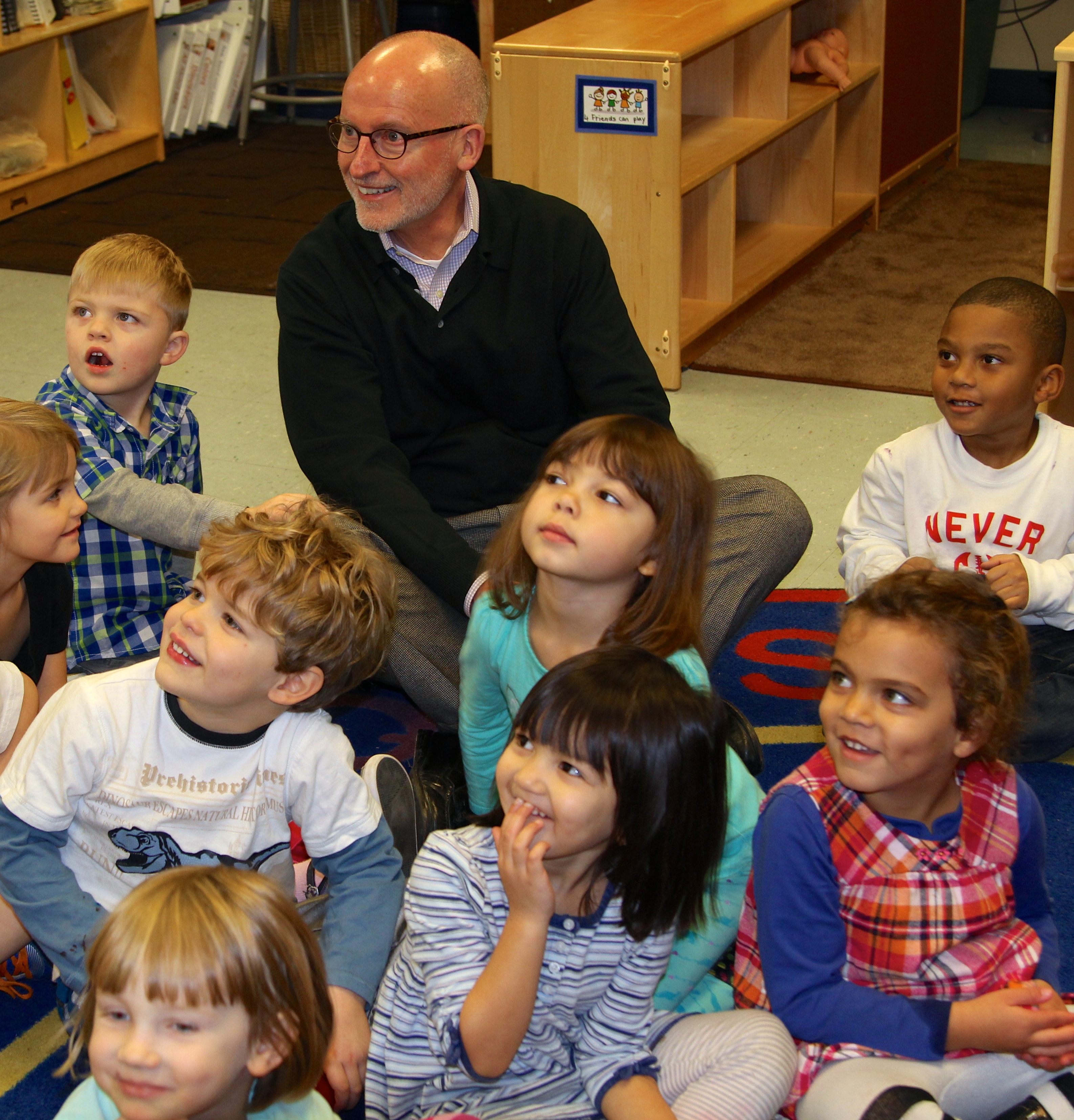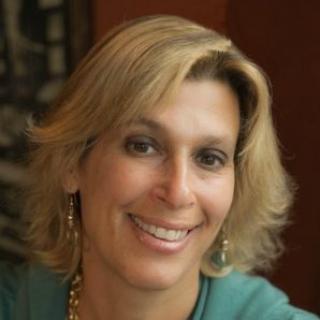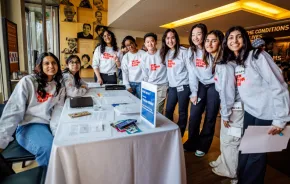
ParentMap is holding a series of preschool previews throughout the month of January. For more information on these events and tips for how to find the right preschool for your child, check out our preschool page.
Did you know that one-third of Seattle's 13,000 3- and 4-year olds do not attend preschool?
Seattle City Councilman Tim Burgess knows. It's one of the facts that spurred him to create the Preschool for All Plan, an ambitious plan to provide voluntary, high quality, universal preschool. The program will be free for families earning less than 200 percent of the federal poverty level (which translates to an annual income of $46,000 or less for a family of four here) and be priced on a sliding scale for everyone else.
Burgess's plan, which was approved by the Seattle City Council in last September, comes on the heels of a national wave of support for universal preschool.
President Obama kicked off 2013 by calling for universal preschool in his State of the Union Address. Since then, Sen. Patty Murray and other members of Congress have sponsored preschool legislation.
Everyone is talking about preschool now because new research shows that investments in early learning pay off later on. Children who receive a strong early educational foundation are less likely to fall behind in school. They stick with their education through high school and college, which leads to higher wages, greater job opportunities and overall economic and personal stability.
But research also shows that a decline in funding has led to a decline in the availability of quality preschool programs. There’s concern that this decline worsens the academic opportunity gap, so that some students enter kindergarten far behind their peers and may spend the rest of their time in school playing catch up.
A look at the initiatives
President Obama proposed a federal-state partnership, which would allow states to receive federal matching funds for preschool programs.
Sen. Murray, who was a preschool teacher, is a co-sponsor of the Strong Start for America's Children Act, legislation introduced in the House and Senate that is a follow-up to Obama’s proposal. It would provide free preschool to children from low- and moderate-income families and increase the qualifications and pay for preschool teachers. Basically, this plan creates a new funding stream to improve and expand preschool opportunities and complement existing programs such as Head Start.
Though there is bipartisan support for universal, affordable preschool, it is unclear whether this legislation will pass, given the current budget climate. Congress will be holding hearings on this legislation in early 2014.
At the state level, in his supplemental budget Gov. Jay Inslee proposed additional funding for early childhood education and assistance programs. The Washington State legislature will review this as part of its budget deliberations this month.
In the meantime, last September, the Seattle City Council passed Burgess's resolution for high quality, affordable, universal preschool for all 3- and 4-year-olds. In November, the council allocated funds to jump-start the process. The initiative is currently in the planning stages, with an action plan expected to be presented to the City Council by April.
Who's got it right?
Regardless of what happens on the state and federal fronts, Seattle is positioning itself to be a pilot city for universal preschool, and we will see some results in 2014. Later this month, the city's Office for Education will release the results of a "gap analysis," requested by Burgess and the City Council, to help determine the preschool needs of the city's children and tally the number of families requiring free or subsidized care. A project manager and outreach coordinator are expected to be named soon.
Burgess says he was inspired by other cities, namely San Francisco, San Antonio and Boston, which have successfully implemented preschool plans, as well as New Jersey, which has implemented universal preschool in 31 school districts.
He brought Carla Bryant, chief of early education for the San Francisco Unified School District, and Dr. Steven Barnett, director of National Institute of Early Education Research (NIEER) at Rutgers University and an architect of universal preschool programs in New Jersey, to meet with the Seattle City Council and share lessons learned.
This March, Burgess and others will take a fact-finding trip to the East Coast to study best practices for setting up preschool programs in Boston and New Jersey and to lobby lawmakers and officials at the Department of Health and Human Services and the Department of Education in Washington, D.C.
"We have the opportunity to bring together various revenue streams and preschool philosophies into one, city-wide common program. This hasn't been done before," Burgess said.
An important step will be the creation of a cabinet-level Department of Education and Early Learning to streamline and consolidate early childhood-related programs (which can be handled by several different city and county agencies and offices), track children who have benefited from different programs and help them access additional programs, as well as evaluate the educational success of different programs.
The challenges
Burgess acknowledges that high quality preschool isn't cheap. "You get what you pay for, but there is a strong return on investment."
He estimates that the program could cost as little as $8,000–$10,000 and as much as $15,000–$17,000 per child per year.
Paying for the program is admittedly one of the biggest challenges. Burgess acknowledges that the city has limited funding options. The Family and Education Levy has been financed through property taxes, an option for the preschool plan. Sales tax remains another possibility. Burgess anticipates a mix of city, state and federal funding and has also approached foundations as potential supporters. For the program to work, he says participation from middle-income families is key, not only because they will be able to pay tuition, but also because this creates a truly heterogeneous learning environment.
Other challenges include determining the components of a quality program. Existing preschool providers might be concerned if they do not possess the credentials the program will require of its teachers, or if they are asked to undergo further training. The program will specify minimum requirements for activities, such as hours spent on play-based learning. "Our standard of quality will be groundbreaking," Burgess said.
Finding adequate space will also be a challenge. Burgess anticipates a "mixed delivery system," using available space at elementary schools and existing preschool facilities, including in-home programs.
The opportunities
What does Burgess most want people to know about the Preschool for All Plan?
"We can do this. We are a city fully capable of introducing high quality preschool successfully and soon. It is in our DNA.
"We must do this if we are going to close the achievement gap and address long-term social issues, such as crime, unemployment and workforce development."
The first of the city's preschools are expected to open in early 2016.
Education news
A new era for NYC schools?: Newly-elected New York City mayor Bill de Blasio has nominated former educator and administrator Carmen Farina to be chancellor of the nation's largest public school system. Education watchers are paying attention, as this appointment is seen as a departure from the education policies of former mayor Michael Bloomberg. Bloomberg favored expansion of charter schools, closing underperforming schools and an increased use of test scores to evaluate teachers. De Blasio supports investments in early education and is calling for increased parental involvement in schools. De Blasio, who is opposed to high-stakes testing, called Farina's appointment one of the most important decisions he will make as mayor.











